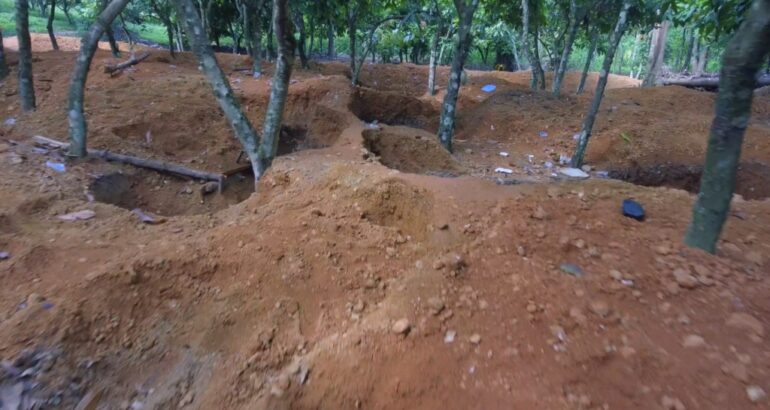A new research report by the Global Initiative Against Transnational Organised Crime has exposed the deeply entrenched role of corruption in enabling illegal mining activities, commonly known as galamsey, across Ghana.
The report alleges that political figures, security officials, and traditional authorities are involved in various corrupt practices within the lucrative artisanal and small-scale gold mining (ASGM) sector.
The study details how galamsey continues to thrive under the protection and facilitation of powerful individuals, including Metropolitan, Municipal and District Chief Executives (MMDCEs), who allegedly exploit their positions for personal gain. According to the research, some MMDCEs not only provide financial backing for illegal operations but also grant protection to political loyalists engaged in galamsey.
“This is not isolated to any one region,” the report states. “From the Western and Savannah regions to the Upper West, political actors, police officers, customs agents, and even chiefs are reportedly profiting from illegal mining ventures.”
Land grabbing and the manipulation of concession allocations are also cited as common practices. The report references a 2018 case involving Canadian mining giant Kinross Gold, which settled with the US Securities and Exchange Commission after allegations that its Ghanaian subsidiaries were used to bribe government officials to fast-track concession approvals.
Corruption is further exacerbated by systemic delays in Ghana’s mining licensing regime. The report found that over a third of respondents waited more than 12 months to acquire a license, often compelled to pay exorbitant ‘facilitation fees’ that could total up to 150% above the official cost. For many miners, these barriers create incentives to bypass the legal route entirely.
The report also exposes the compromised nature of security operations designed to tackle galamsey. Operation Vanguard, a widely publicized joint military-police task force launched in 2017, has allegedly been undermined by internal corruption. A former member of the task force disclosed that some illegal sites were deliberately excluded from enforcement efforts due to bribes paid to senior officers.
In one troubling instance, officers who seized excavators from an illegal site were reportedly compelled to release them after learning the site was owned by a sitting district chief executive. In another case, a prosecutor pursuing charges against a foreign national was mysteriously removed from the case.
“The constant interference from so-called ‘big men’—whether political leaders or traditional authorities—makes it nearly impossible for law enforcement to carry out their duties effectively,” a government official was quoted as saying in the report.
These revelations cast a shadow over the government’s repeated pledges to combat illegal mining and preserve Ghana’s rapidly depleting natural resources. As the report concludes, any meaningful attempt to stem the tide of unlicensed ASGM must confront the political and institutional rot that sustains it.


